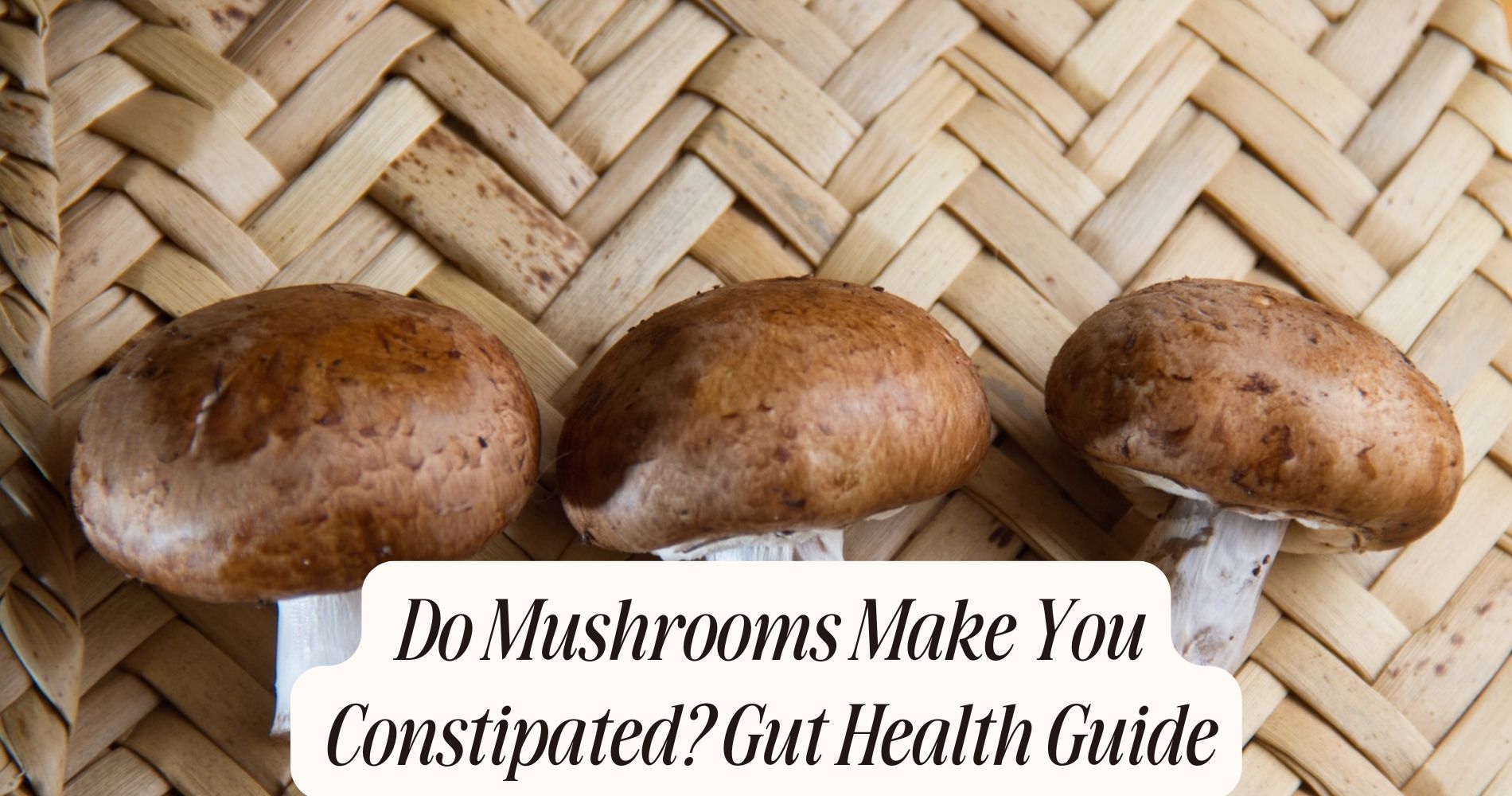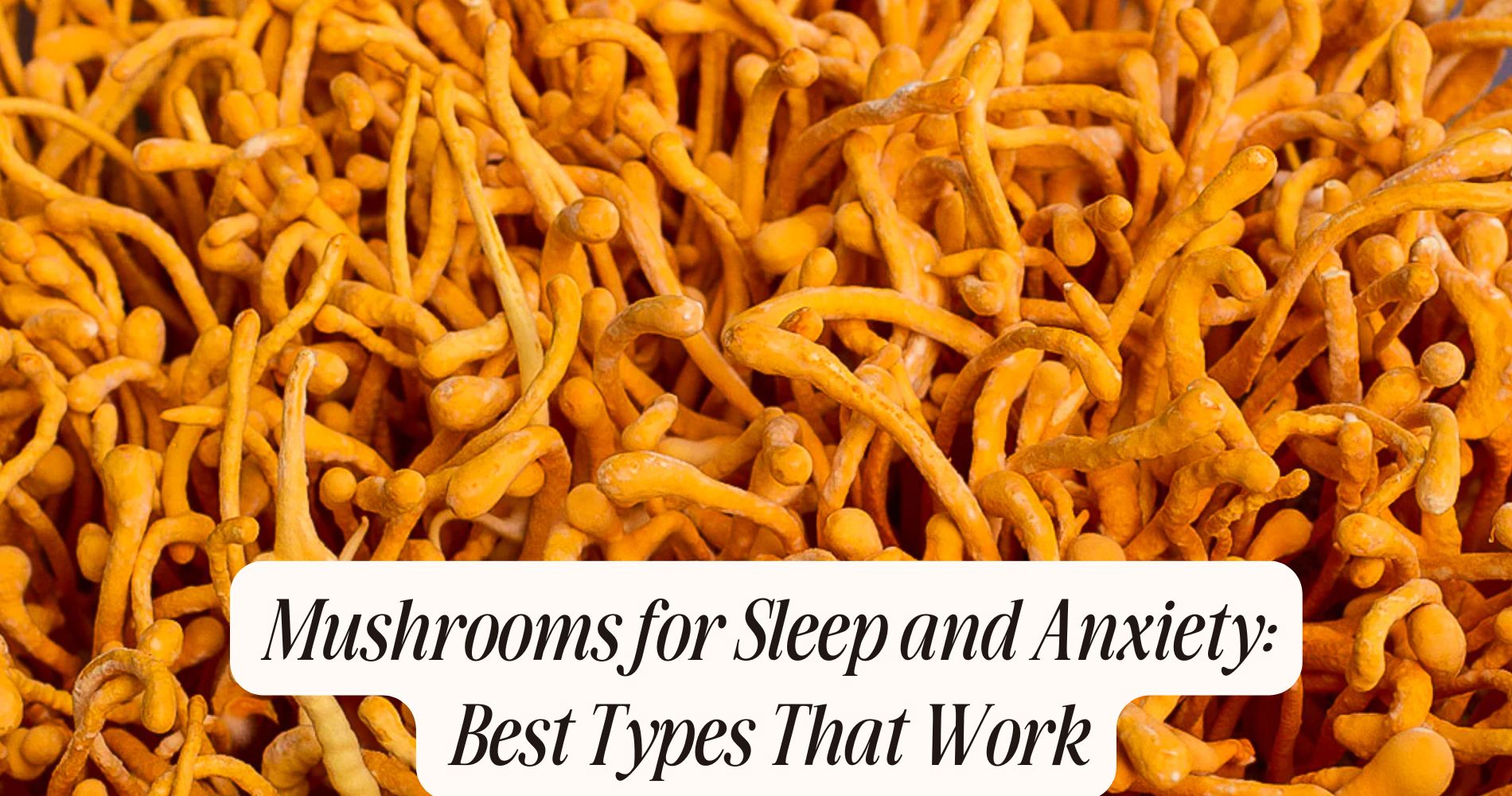
Do Mushrooms Make You Constipated? Gut Health Guide
Do mushrooms make you constipated? If you’ve ever wondered whether mushrooms can lead to constipation, you’re not alone. Many people question the impact of various foods on digestive health. Curiously, mushrooms are packed with fiber, which typically aids in digestion rather than hinders it. But what exactly is the relationship between mushrooms and gut health? Understanding this connection can help you make informed dietary choices that promote regularity and overall well-being.
Understanding Digestive Health and Constipation
When it comes to digestive health, understanding the role of constipation is essential for overall well-being.
Constipation can disrupt your gut microbiome, which consists of trillions of bacteria that aid in digestion. A balanced gut microbiome relies on regular bowel movements to maintain this essential environment.
When you're constipated, the production and function of digestive enzymes can also be affected, making it harder for your body to break down food effectively. This can lead to discomfort and further digestive issues.
To promote regularity, consider incorporating fiber-rich foods and staying hydrated. These practices not only support healthy digestion but also enhance the function of your gut microbiome and digestive enzymes, keeping your digestive system running smoothly.
Nutritional Profile of Mushrooms
Mushrooms are a powerhouse of nutrition, offering a unique blend of essential vitamins, minerals, and antioxidants. With their impressive nutrient density, they provide significant amounts of B vitamins, selenium, and potassium, all of which support your overall health.
They're low in calories and fat, making them an ideal addition to any diet. Their culinary versatility allows you to incorporate them into a variety of dishes, from stir-fries to soups, enhancing flavor while boosting nutritional value.

Research shows that regular consumption of mushrooms can contribute to improved immune function and reduced inflammation. So, whether you sauté, roast, or grill, adding mushrooms to your meals can help you enjoy their myriad health benefits while keeping your diet balanced and nutritious.
The Role of Fiber in Gut Health
Incorporating mushrooms into your diet not only enhances flavor and nutrition but also increases your fiber intake, which plays a significant role in gut health.
Fiber comes in two forms: soluble and insoluble. Soluble fiber absorbs water, forming a gel-like substance that helps regulate digestion and can lower cholesterol levels. On the other hand, insoluble fiber adds bulk to your stool and promotes regular bowel movements, preventing constipation. Eating a balanced mix of both types is essential for maintaining a healthy gut.
Mushrooms provide a unique source of fiber that supports beneficial gut bacteria, improving overall digestive function. By including mushrooms in your meals, you’re taking a proactive step towards better gut health.
Types of Fiber Found in Mushrooms
Fiber plays an essential role in the health benefits that mushrooms offer, particularly through their unique composition. Various mushroom varieties, like shiitake and portobello, contain different types of dietary fibers.

These include soluble fibers, which dissolve in water and help regulate blood sugar, and insoluble fibers, which add bulk to your stool and promote regularity. The polysaccharides found in mushrooms, such as beta-glucans, also contribute to their fiber content, supporting immune health and gut function.
By incorporating diverse mushroom varieties into your diet, you can enhance your fiber intake, aiding digestion and potentially preventing constipation.
How Mushrooms Affect Gut Microbiome
When you consume mushrooms, their unique composition can positively influence your gut microbiome.
Different mushroom varieties, such as shiitake, maitake, and reishi, are rich in polysaccharides and fiber, which support the growth of beneficial gut bacteria. These compounds can enhance gut diversity, promoting a balanced microbiome that aids digestion and overall health.
Research suggests that the prebiotic effects of mushrooms help nourish good bacteria, potentially leading to improved gut function. Additionally, the antioxidants in mushrooms may reduce inflammation, further benefiting your gut environment.
Potential Causes of Constipation
A healthy gut microbiome plays a significant role in maintaining regular bowel movements, but various factors can still lead to constipation.
Dehydration factors, such as not drinking enough water, can harden stool and make it difficult to pass. If you’re consuming a diet low in fiber, your digestive system may struggle to move waste efficiently. Processed foods and excessive dairy can further exacerbate this issue.

Additionally, changes in routine, like traveling or stress, can disrupt your gut’s normal functioning. Sedentary lifestyles also contribute, as physical activity helps stimulate bowel movements.
Tips for Including Mushrooms in Your Diet
Including mushrooms in your diet can be a flavorful and nutritious way to enhance your overall health. Start by exploring simple mushroom recipes, like sautéed mushrooms with garlic or adding them to stir-fries. These dishes are quick and retain the mushrooms' beneficial nutrients.
You can also incorporate mushrooms into soups and salads for extra texture and flavor. Experiment with various cooking methods, such as grilling or roasting, to bring out their natural umami taste.
Don’t forget about dried mushrooms; they add depth to sauces and stews. Aim for a variety of mushrooms, like shiitake, portobello, and cremini, to reap different health benefits.

When to Consult a Healthcare Professional
Mushrooms can be a helpful addition to your diet, especially when dealing with digestive issues like constipation. However, if you experience persistent symptoms despite dietary adjustments, it’s time to consult a healthcare professional.
A thorough symptom assessment can help identify underlying causes of your constipation, which may be unrelated to mushroom consumption. Additionally, if you're noticing severe abdominal pain, blood in your stool, or unintentional weight loss, don’t hesitate to seek medical advice.
These signs can indicate more serious health concerns that require immediate attention. Remember, while mushrooms can promote gut health, your body’s response varies. It’s crucial to verify you’re on the right track with your diet and overall health.
A Tastier Way to Support Gut Health
Looking for an easy, delicious way to support your digestion and overall wellness? Try SUPER MUSHROOM GUMMIES by Well Gummies. Packed with a powerful blend of 10 functional mushrooms—including digestive-supporting varieties—these vegan, chewable gummies promote gut balance, focus, immunity, and calm energy. Plus, they taste like wild berries—so good, they feel more like a treat than a supplement. No jitters, no crash—just clean, natural support to help you feel your best, every day.
Frequently Asked Questions
Can Certain Mushroom Varieties Cause Constipation More Than Others?
Certain mushroom types do have varying fiber content, which can influence digestion. Higher fiber mushrooms, like shiitake, might help prevent constipation, while lower fiber varieties could potentially contribute to digestive issues for some individuals.
Are There Any Mushroom Side Effects Related to Digestion?
Certain mushroom varieties might affect digestion, as they can contain compounds that influence the production of digestive enzymes. While many people digest mushrooms well, some may experience mild digestive discomfort or gas.
Do Cooking Methods Influence Mushrooms' Impact on Constipation?
Yes, cooking techniques and preparation methods can influence mushrooms' effects on digestion. Properly cooking mushrooms can enhance their fiber availability, promoting gut health and potentially reducing the risk of constipation, compared to raw consumption.
How Do Mushrooms Compare to Other Foods for Preventing Constipation?
Mushrooms offer unique mushroom fiber that supports your gut microbiome, helping prevent constipation. Compared to other foods, their fiber content and prebiotic properties enhance digestive health, promoting regularity and contributing positively to overall gut function.
Can Mushroom Supplements Affect Gut Health Differently Than Fresh Mushrooms?
Mushroom supplements can affect your gut microbiome differently than fresh mushrooms. While they may provide concentrated nutrients, some studies suggest fresh mushrooms offer diverse fibers that support gut health more effectively. Individual responses vary, so listen to your body.
Conclusion
Incorporating mushrooms into your diet can actually support digestive health rather than cause constipation. Their rich fiber content promotes regular bowel movements and nourishes beneficial gut bacteria. While individual responses to foods can vary, mushrooms are generally a safe choice for maintaining gut balance. If you experience persistent digestive issues, it’s always wise to consult a healthcare professional for personalized advice. Enjoy mushrooms as part of a varied diet to boost your overall gut health.




